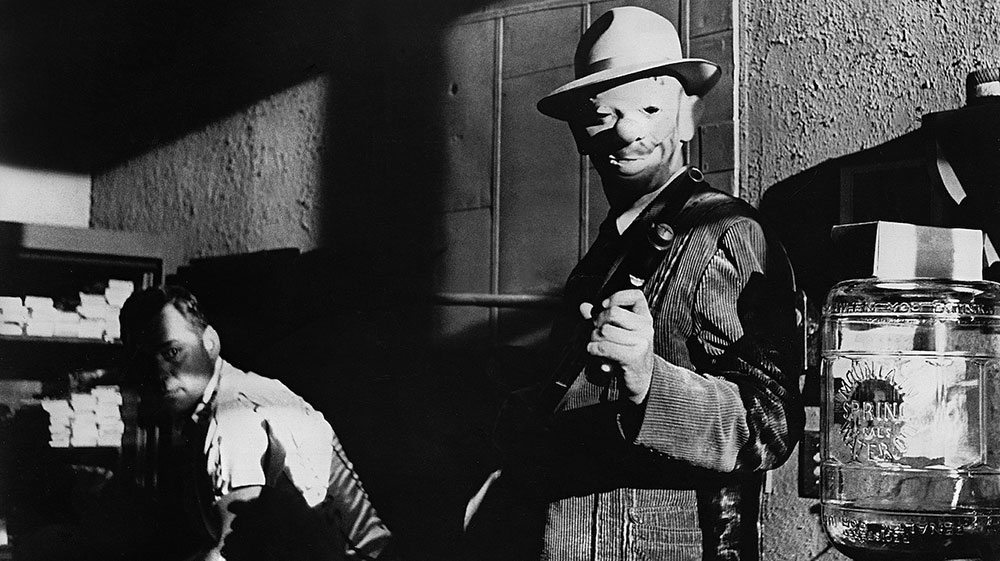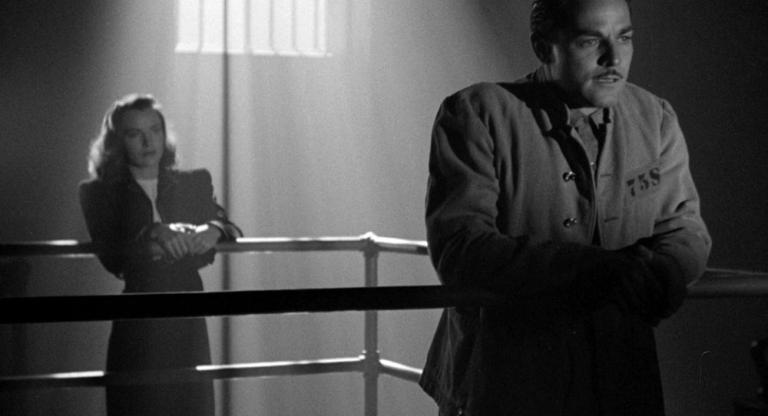The Killing (1956) marks a decisive turning point in Stanley Kubrick’s career. The film’s well-oiled narrative rhythm, machine-like in its relentless updating of events, is a far cry from the clumsy storytelling in his previous effort, Killer’s Kiss (1955). Likewise, the sterling display of personality from Kubrick’s entire cast in The Killing pits his film far away from the cheap melodrama of his first feature, Fear and Desire (1952). As a mean and clean potboiler, populated with cold-hearted criminals and wannabe malefactors along with some hot-headed types sprinkled throughout for the narrative’s sake, the film advances many of the themes that preoccupied Kubrick throughout his career while demonstrating his talents as a filmmaker capable of staging an unfortunate series of events for maximum entertainment.
The plot revolves around a heist at a race track, a setup that occasions a neat, if inadvertent and subversive, allusion to Eadweard Muybridge’s Horse in Motion, in addition to supplying the film with a built-in freneticism. Kubrick’s decision to detail the specifics of the heist through a rotating door of perspectives and series of chronological double-backs enhances the anything goes energy of the film. His decision to further decorate The Killing with a narrator who recounts each important beat of the heist gives it an extraordinary thrill. This choice, which allows for a constant juxtaposition between sudden mishaps throughout the heist’s execution and the narrator’s calm updates, provides the film with its main narrative tension as the discrepancy between the story playing out and the story being told grow, culminating in an inevitable and foreseeable catastrophe.
The contrast between the omniscient narration and ill-informed decisions of the characters in The Killing anticipates a central tension in Kubrick’s filmography throughout the ‘70s and into the ‘90s. In much the same way time does not agree with the schemers in this film, misfortune suddenly befalls characters tempting fate in A Clockwork Orange (1971), Barry Lyndon (1975), and Eyes Wide Shut (1999). The indolent and emphatically naïve faces of Malcolm McDowell, Ryan O’Neal, and Tom Cruise, respectively, like Sterling Hayden’s frown of surrender at the end of The Killing, suggest a built-in resignation to fate pervades among Kubrick’s leading men—a fitting curse for a cast of characters subject to the imagination and command of a director whose storied meticulousness landed him with the reputation of playacting God on set.
The Killing screens tonight, July 8, at Nitehawk Williamsburg on 35mm as part of the series “Robbin’ Season.”




